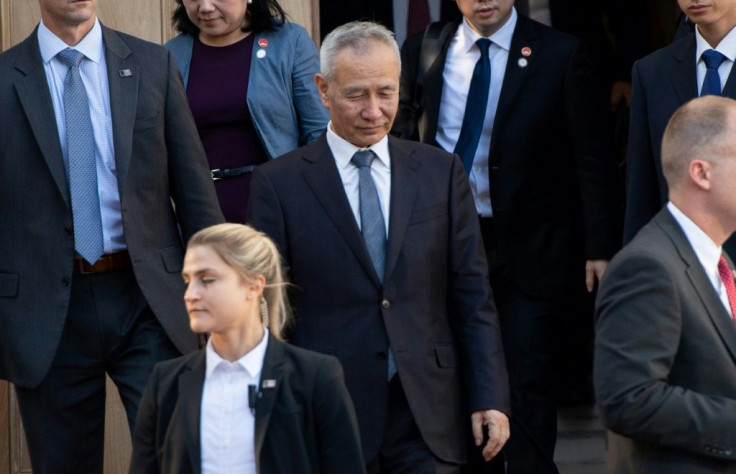US-China Talks Resume As Hopes For Mini-deal Rise

Chinese and US trade officials resumed bargaining efforts on Friday as optimism grew for the two sides to reach an interim agreement and mark a pause in their increasingly damaging trade war.
Wall Street was poised to rally at the open as investors bet a partial pact would see President Donald Trump postpone next week's scheduled tariff increases on hundreds of billions of dollars in Chinese imports.
Trump was expected to meet with Beijing's top trade envoy Liu He later Friday in a sign the two sides likely expect to make a positive announcement.
The president told reporters on Thursday the talks had so far gone "very well."
Overnight, meanwhile, China's securities regulators set a timetable for removing foreign ownership limits in finance companies in 2020 -- helping attract foreign investment as China's economy slows but also removing constraints on foreign capital.
In Beijing, Foreign Ministry Spokesman Geng Shuang told reporters that China hoped "to promote positive progress" in the talks.
Media reports this week have drawn the contours of a partial deal that, while not addressing Trump's core grievances about China's trade practices, would offer something for both sides.
China will continue to increase purchases of US farm exports and pledge to refrain from currency manipulation while Washington will suspend a tariff increase, Bloomberg reported.
Where matters go from there remains to be seen, however.
China has so far balked at Trump's demands for profound changes in the way Beijing manages its economy, something analysts say could politically undermine the Communist Party.
Meanwhile, the Trump administration has continued to examine ways in which it could exert more pressure on Beijing beyond simply taxing Chinese imports.
Larry Kudlow, a top White House economic aide, said this week this could include heightened regulatory scrutiny of Chinese companies operating in the United States.
© Copyright AFP 2024. All rights reserved.





















